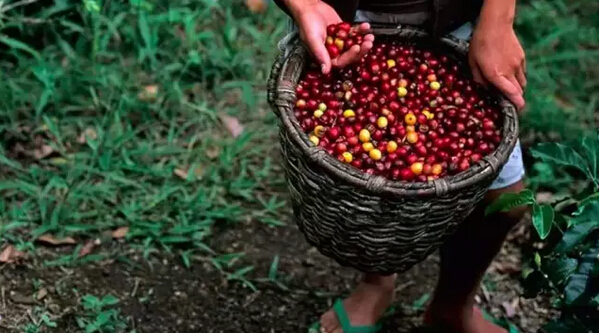An introduction to the Historical and Cultural Origin of Coffee cultivation in China
An introduction to the Historical and Cultural Origin of Coffee cultivation in China
According to historical records, coffee was first planted in Taiwan in 1884, which opened the prelude to the development of coffee in China. The earliest coffee cultivation in the mainland began in Yunnan, when a French missionary brought the first coffee seedlings to Binchuan County in Yunnan Province at the beginning of the 20th century. In the following nearly a hundred years, coffee was only "dotted" in the vast territory of China. However, in recent years, the development of coffee cultivation and consumption in China has attracted more and more attention of the world. Maxwell, Nestle, Colombia and other international coffee companies have set up branches or factories in China to provide better varieties and prices for the Chinese market. As a part of the Western way of life, coffee has officially entered the Chinese family and life; cafes in Beijing, Shanghai, Guangzhou and other big cities have sprung up with the growth of coffee culture, becoming a new consumption fashion for young people, decorated with urban customs. Coffee became popular in South America as a fashionable drink in 1668, followed by coffee houses in New York, Philadelphia, Boston and other North American cities. The Boston Tea Party case of 1773 was planned in a coffee shop called Green Dragon. Today, both the New York Stock Exchange and the Bank of New York in the famous Wall Street financial district start in coffee shops. Coffee was first grown in America in the 1820s, and it was the Dutch who first spread coffee to Central and South America. Coffee spread from the Dutch colonies to French Guiana and Brazil, and then by the British to Jamaica. By 1925, growing coffee had become a tradition in Central and South America. In the same year, Hawaii also began to grow coffee, which is the only coffee producer in the United States, and Hawaiian coffee is one of the best coffee in the world. To date, Brazil is already the world's largest coffee producer, accounting for about 30 per cent of global coffee production, while Colombia is the second largest coffee producer, accounting for about 12 per cent of global coffee production. North America is currently the two largest coffee consumption region. In Seattle, "Latai" culture reinterprets the connotation of coffee culture, combining unique flavor coffee, beautifully designed coffee utensils with fashion and art, and sweeping the world.
In China, people like drinking coffee more and more. The "coffee culture" that follows is full of every moment of life. People are tasting coffee at home, in the office, or on various social occasions: it is gradually associated with fashion and modern life. Coffee houses everywhere have become good places for people to talk, listen to music and rest, and coffee has gradually developed into a culture. Whether it is freshly ground coffee beans or freshly brewed hot coffee, it exudes a rich aroma and makes people intoxicated. There are many ways to savor this intoxication: espresso, cappuccino, Latay, flavored coffee; they offer a variety of options for people who regularly patronize coffee shops in Beijing, Shangjiu and other big cities in China. Chinese people also gradually like to make their own coffee. Using roasted coffee beans, filter pots and filter paper to make a cup of fresh coffee also has a different taste.
As coffee is widely known as a drink with a long history, coffee is being accepted by more and more Chinese people. Some data show that China's coffee consumption is increasing year by year, and is expected to become an important coffee consumer in the world. Today, Yunnan coffee produced in China's own land, with its noble quality and low price, will promote this trend, guide this fashion, become the Chinese people's own coffee brand, and have China's own unique coffee culture.

Important Notice :
前街咖啡 FrontStreet Coffee has moved to new addredd:
FrontStreet Coffee Address: 315,Donghua East Road,GuangZhou
Tel:020 38364473
- Prev

Shanwei surprised to find that more than 200,000 fake Nestle Coffee is produced in the "black nest".
Shanwei City Public Security Bureau Economic investigation Detachment received the clues of the Provincial Public Security Bureau Economic investigation Bureau said: there are factories in the city that produce and sell fake and shoddy products. Upon receipt of the report, the detachment immediately filed a case for investigation. After a period of in-depth touch and arrangement, the police found that there was a major suspicion of producing fake sparrow company registered trademark goods in a production workshop in Jiadong Town, Lufeng City. A building in Jiaxi Town was related.
- Next

The 26th World Coffee Science Congress held in Kunming
Liu Lianyu, president of the Export-Import Bank of China, Yu Dingcheng, vice chairman of the Provincial Committee of the Chinese people's political Consultative Conference and chairman of the Provincial Federation of Industry and Commerce, Sun Handong, academician of the Chinese Academy of Sciences, and other guests attended the opening ceremony. On behalf of the provincial government, he Duanqi welcomed the guests attending the meeting. He said that Yunnan is one of the earliest provinces in China to grow coffee, and has formed a complete industrial chain from planting, processing, consumption to marketing, the coffee industry.
Related
- The ceremony is full! Starbucks starts to cut the ribbon at a complimentary coffee station?!
- A whole Michelin meal?! Lucky launches the new "Small Butter Apple Crispy Latte"
- Three tips for adjusting espresso on rainy days! Quickly find the right water temperature, powder, and grinding ratio for espresso!
- How much hot water does it take to brew hanging ear coffee? How does it taste best? Can hot water from the water dispenser be used to make ear drip coffee?
- What grade does Jamaica Blue Mountain No. 1 coffee belong to and how to drink it better? What is the highest grade of Blue Mountain coffee for coffee aristocrats?
- What are the flavor characteristics of the world-famous coffee Blue Mountain No. 1 Golden Mantelin? What are the characteristics of deep-roasted bitter coffee?
- Can I make coffee a second time in an Italian hand-brewed mocha pot? Why can't coffee be brewed several times like tea leaves?
- Hand-brewed coffee flows with a knife and a tornado. How to brew it? What is the proportion of grinding water and water temperature divided into?
- What is the difference between Indonesian Sumatra Mantinin coffee and gold Mantinin? How to distinguish between real and fake golden Mantelin coffee?
- What does bypass mean in coffee? Why can hand-brewed coffee and water make it better?

